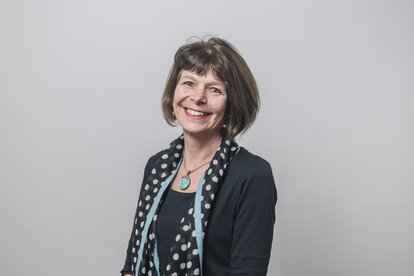As outlined in an earlier posting, our aim as an organisation is to focus our interventions as far as possible in support of the marginalised and disadvantaged. Each country programme has a broad definition of who such people are in their particular context, but this often needs to be more precisely elaborated within specific projects. A “tool” used to this effect is well-being ranking , one of an array of so-called PRA (participatory rural appraisal) “tools” that were developed back in the 1980s and 1990s. Well-being is taken here to mean not only wealth in financial terms, but also any other factors that community members feel contribute to a good and happy life.
On a field visit to Northern Mozambique a few months ago, I sat in on a well-being ranking exercise in the village of Sassalane, some 90 minutes or so by car from the provincial capital of Pemba. No doubt in part because two large cars had rolled up, from which emerged several foreigners along with local staff, many people gathered to hear what was going on. The facilitator, Mauricio Negas, first led a round of exchanges on what constituted “well-being”, and then reached the point of asking participants to take a bag of groundnuts and put them in piles, one groundnut per household, to demonstrate different well-being categories. After debate, four piles emerged – one of a couple of groundnuts (1), one of a few more (2), a large pile (3) and then a rather smaller one (4). The village participants considered that most people, those in category 3, had a low level of well-being, and they elaborated the characteristics of this group. Who was in category 4, we asked? The reply
came that none of these people were present – but that they were the thieves: those who have nothing, and who have to steal from others to survive. It had, incidentally, previously been pointed out that the solar panels for supplying electricity to an adult literacy centre could not be fitted because a theft-proof method was still being devised.
An exercise such as this has to be validated with further less “orchestrated” exercises and discussions, without the presence of many external observers. Nevertheless, all of us were struck by the clear way in which the villagers identified thieves as a distinct group. It seems logical that highly unequal societies are likely to have higher rates of crime. Indeed, there is considerable evidence to this effect; for example, Kate Pickett and Richard Wilkinson argue forcibly that more equal societies are better for almost everyone, partly because of reduced crime rates. More subtly, a recent detailed comparative analysis across different disciplines and parts of the world suggested that property crime is highly correlated with income inequality, whilst violent crime is less strongly correlated although there is still a link. As it happens, the Mozambique villagers also commented that violence against women cannot be linked to any well-being category; it is present in rich and poor families alike. However, I don’t have pertinent statistics to check this.
What a number of us who visited the village were left pondering was both the degree to which petty crime stifles local development opportunities, and, more importantly, the incentives to be honest in an overall system that is often not. It is, after all, not the poorest who are the greatest thieves. Mozambique has apparently improved in corruption rankings in recent years, but it still ranks 119 out of 177 countries on Transparency International’s corruption perception index . This is of course a difficult topic, and one with no simple answers. But it does provide an argument for promoting a greater voice in decision-making for all citizens, through strengthened local governance. This is one of the justifications for the emphasis placed on this topic in our Mozambique country programme strategy.


